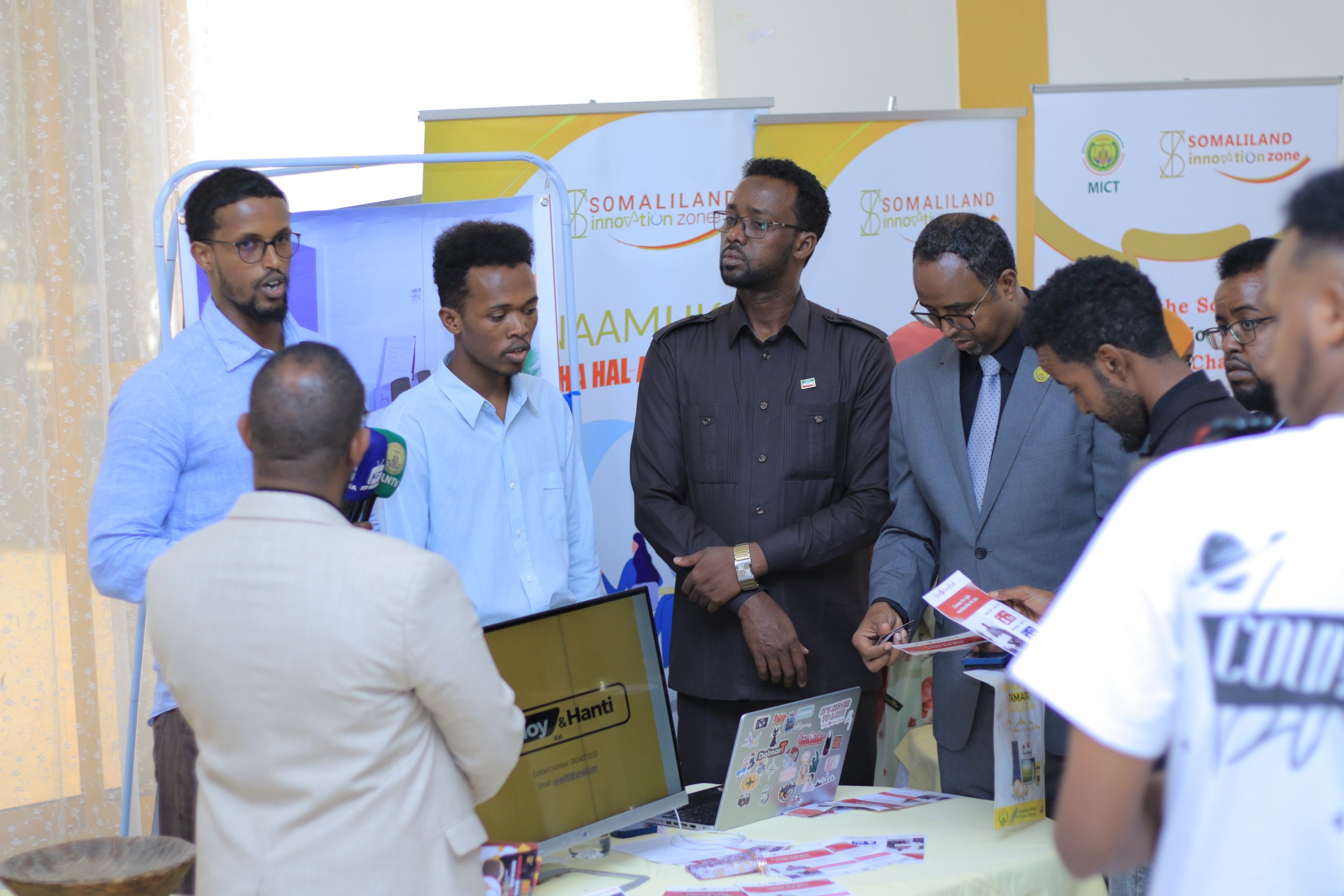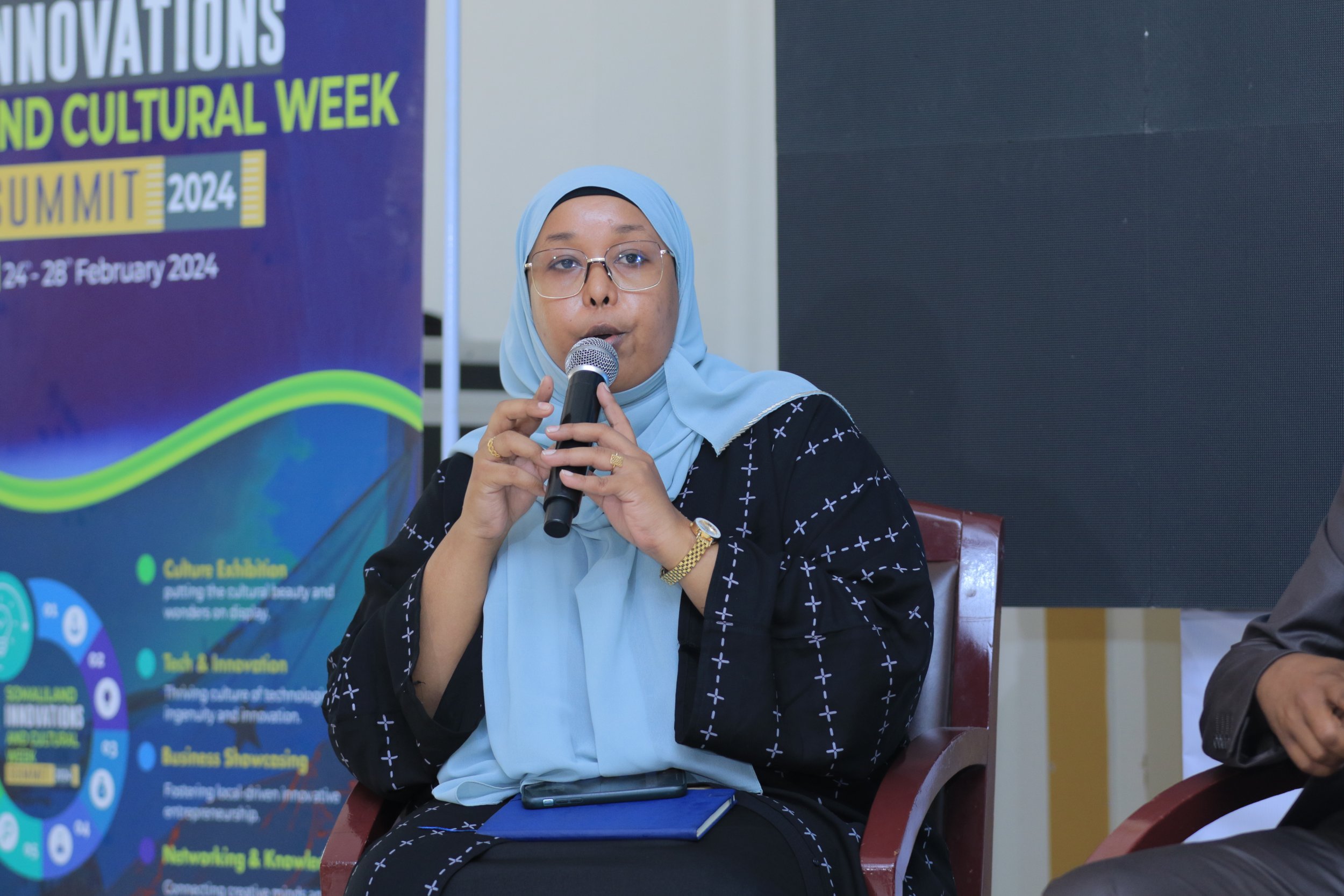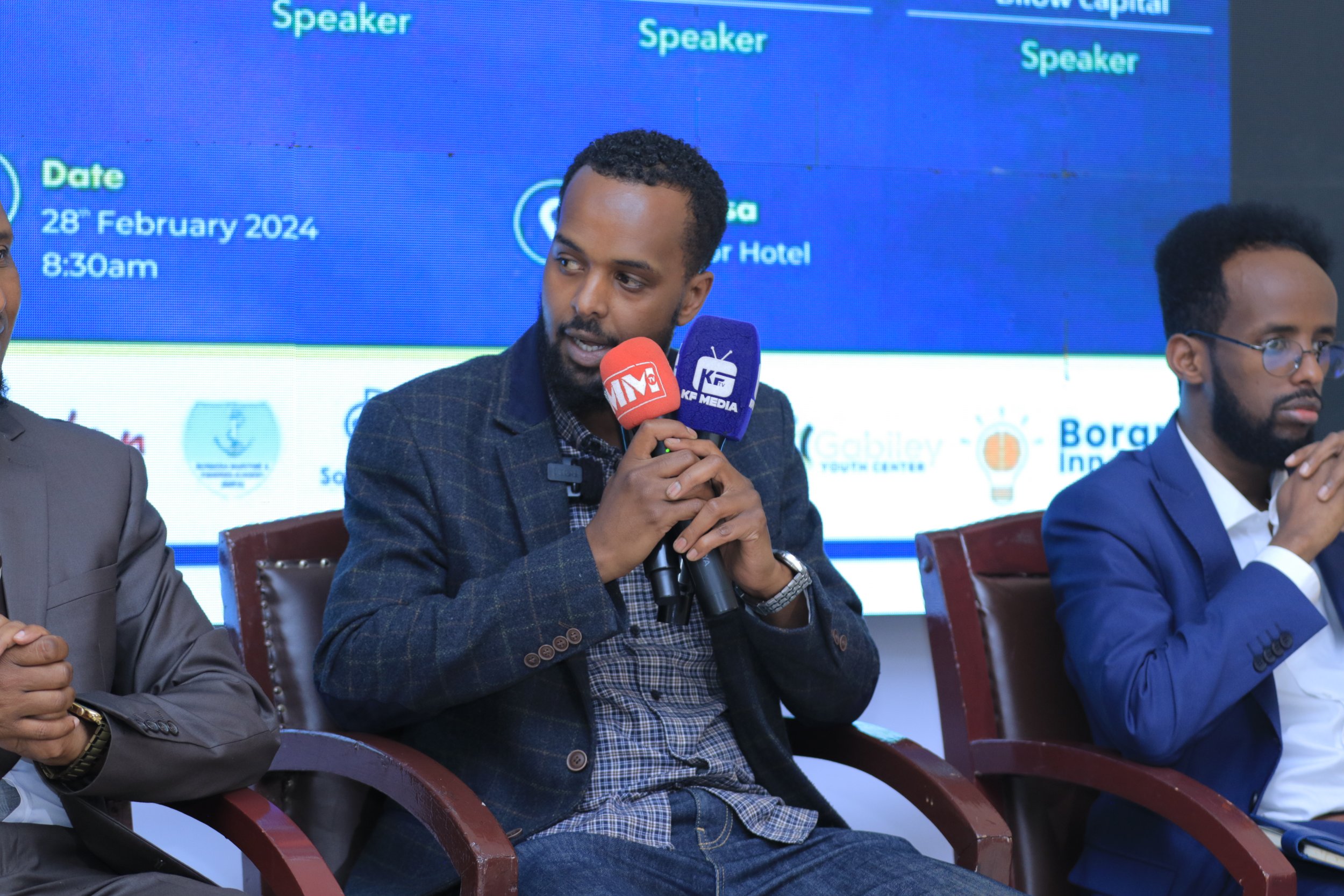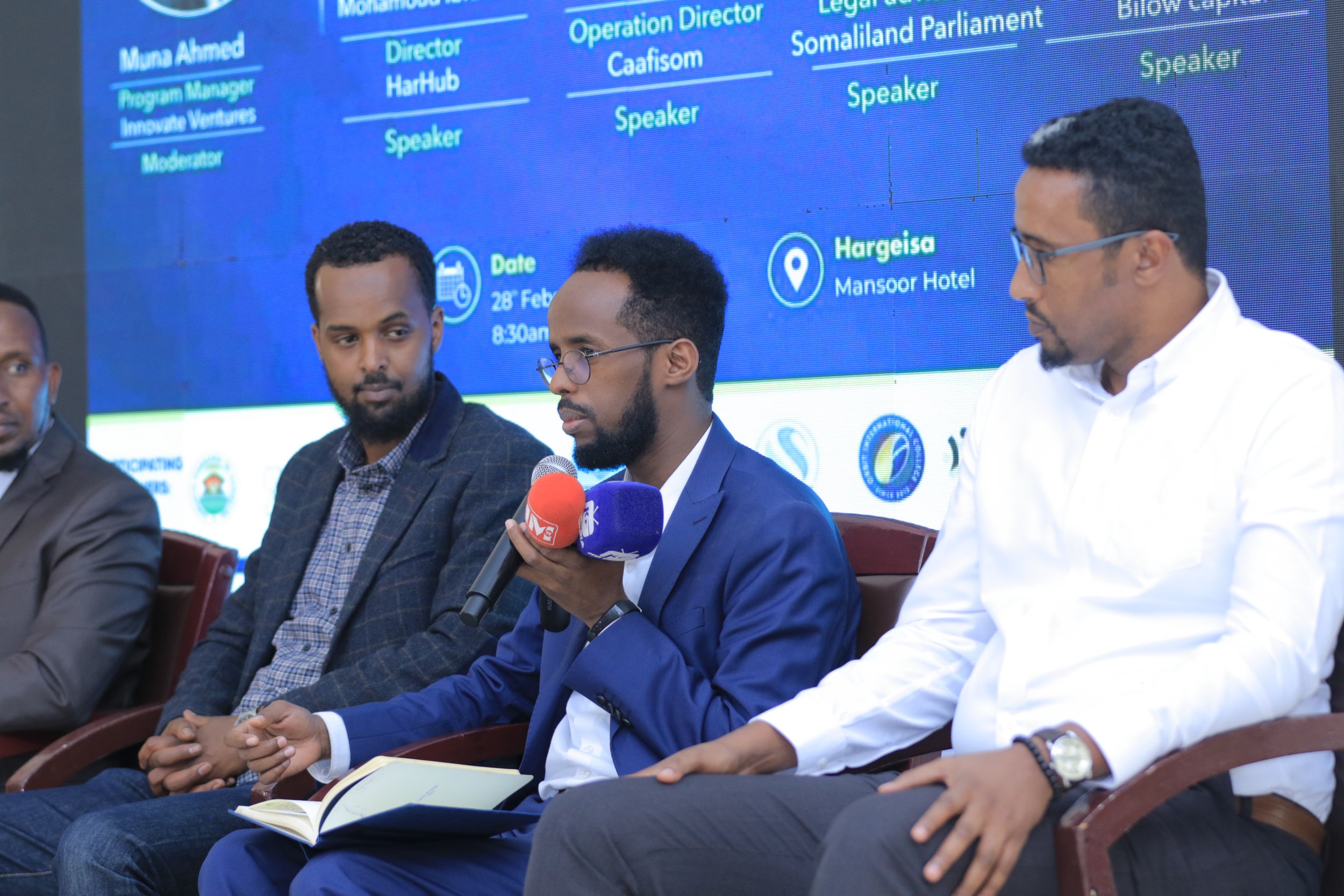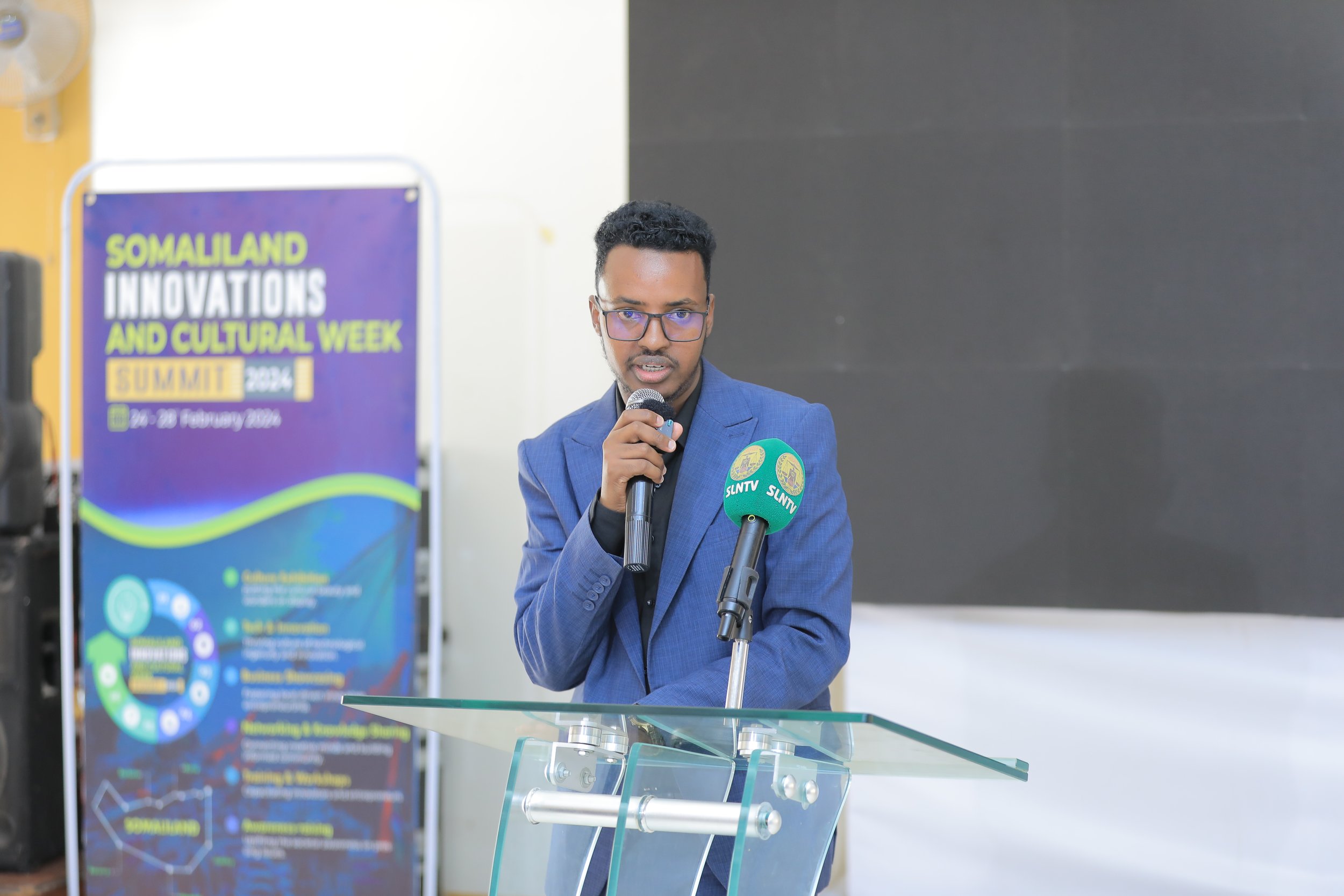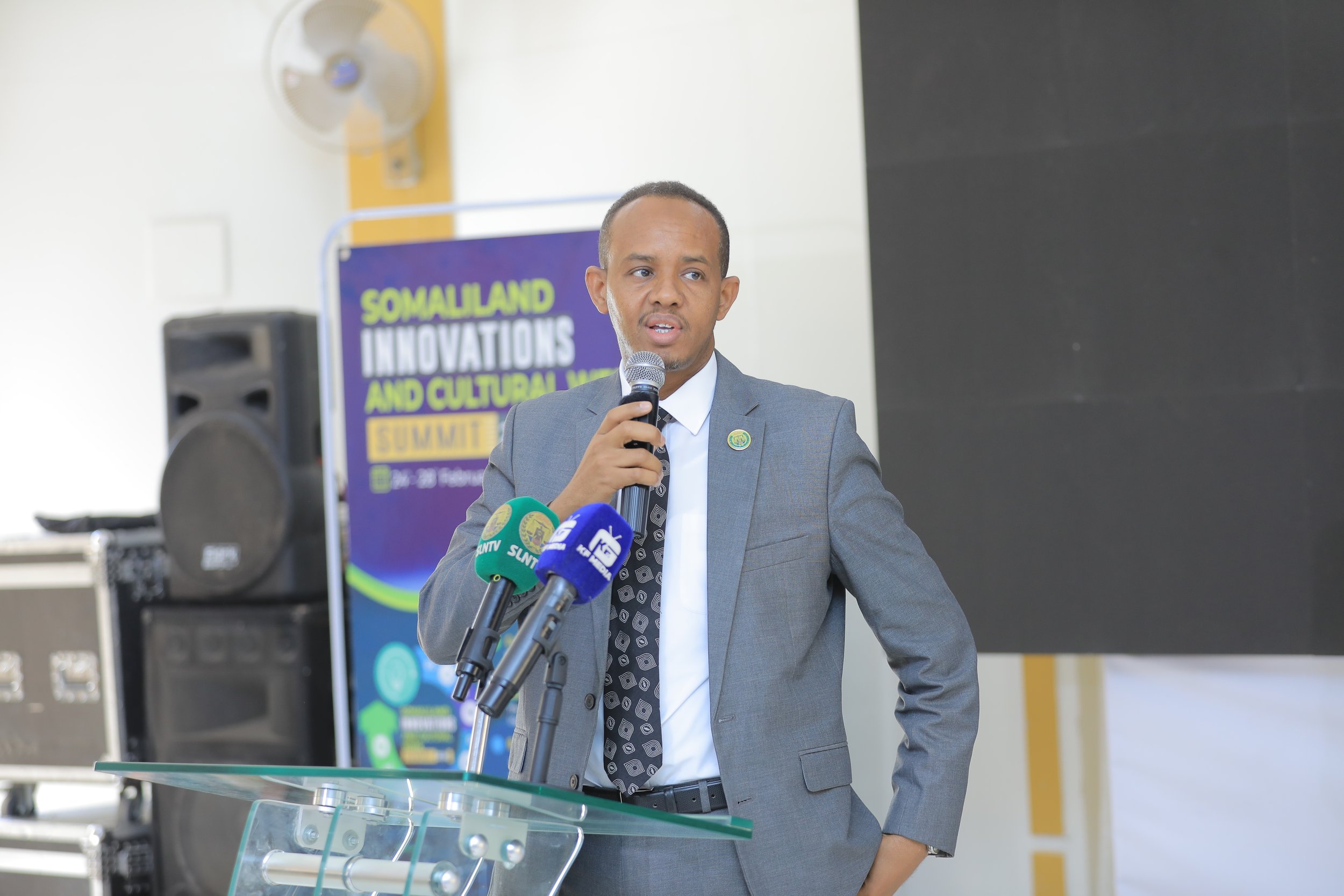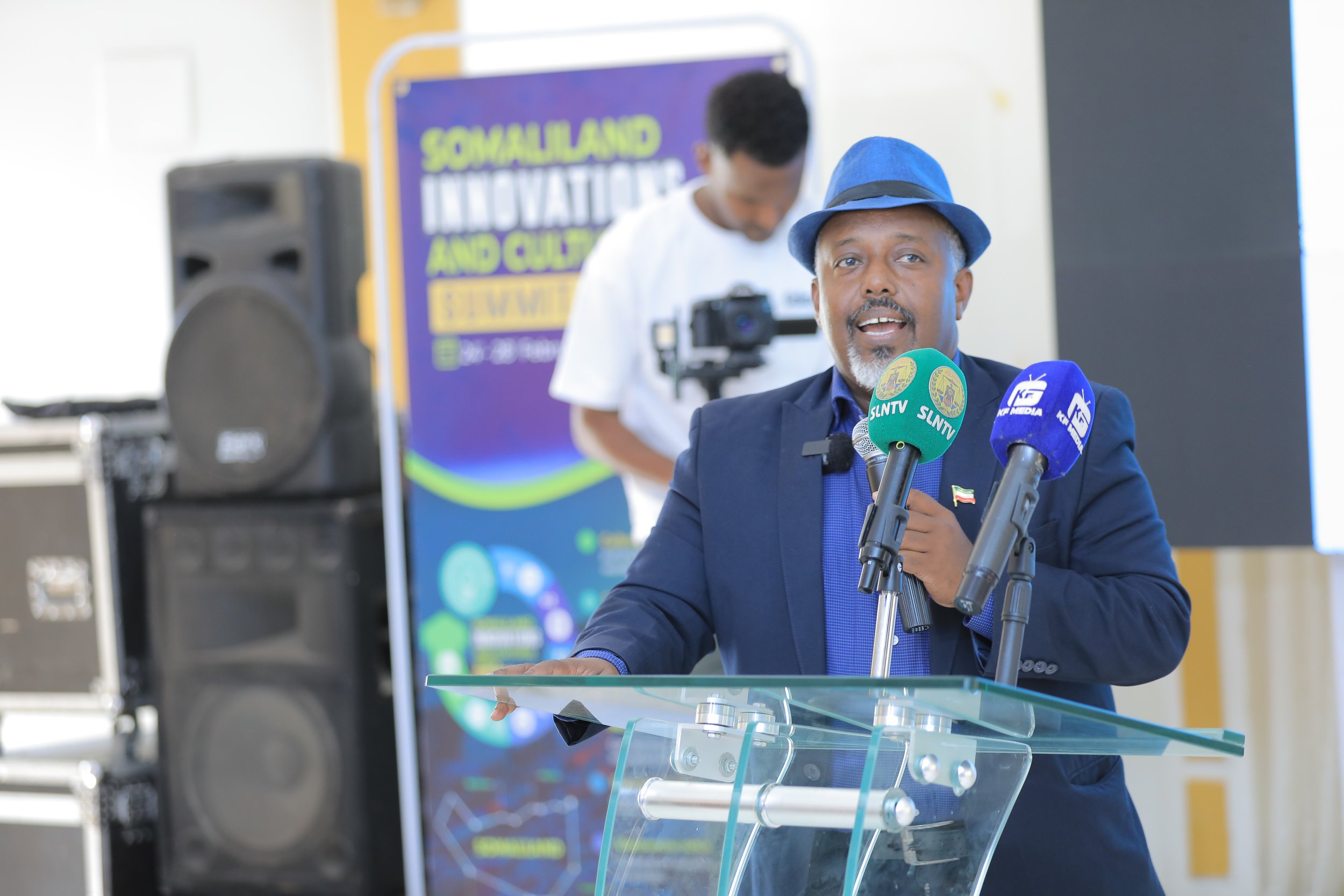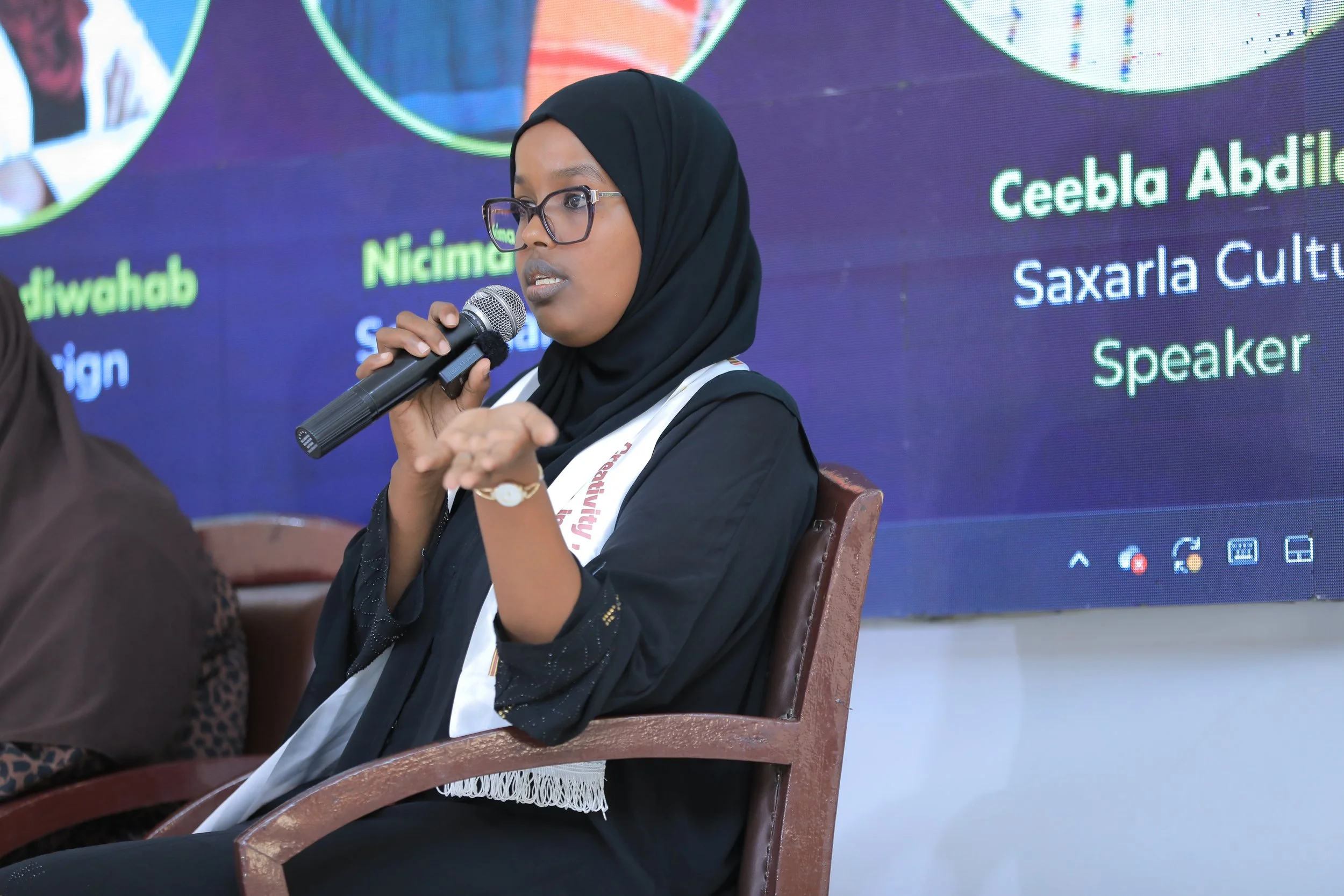Hargeisa Ignites Innovation: A Summit for Entrepreneurship and Growth
28th – 29th February 2024. The event in Hargeisa concluded the Somaliland Innovations and Cultural Week Summit 2024, spanning two days filled with rich discussions, showcases, and collaborations. This significant gathering not only highlighted the cultural and innovative prowess of Somaliland but also aimed to propel sustainable development through technological and cultural synergies.
Introduction & Objectives:
The summit in Hargeisa aimed to merge tradition with innovation, fostering an environment where technology and cultural heritage drive societal development. Key objectives were empowering youth, enhancing entrepreneurship, and integrating cutting-edge technologies like artificial intelligence with the rich cultural tapestry of Somaliland.
Day One:
The first day of the Hargeisa event began with traditional performances, which set the tone of cultural pride. The keynote addresses underscored the importance of merging innovation with tradition. Key speakers included government officials from the Ministries of Investment, Trade, Youth, and Employment, each highlighting the transformative potential of entrepreneurship and technology. They emphasized youth empowerment, national development, and global competitiveness, citing the need for a supportive policy environment that fosters innovation.
In attendance at the Somaliland Innovations and Cultural Week Summit were esteemed government officials representing key ministries. In line with the importance of the summit and its timely occurrence, government officials offered keynote speeches, highlighting the critical role of innovation, entrepreneurship, and youth empowerment in driving Somaliland's development agenda forward. To begin with, the Director General of the Ministry of Investment and Industrial Development highlighted the commitment to fostering innovation and entrepreneurship, aiming to propel Somaliland towards sustainable development and prosperity. Simultaneously, the Director General of the Ministry of Trade and Tourism emphasized leveraging technology and entrepreneurship to enhance industrial competitiveness and attract global visitors. Recognizing the pivotal role of youth, the Director General of the Ministry of Youth and Sport underscored the power of young people to drive positive change and innovation in society. This sentiment was echoed by the Deputy Chairman of the Good Governance Commission, who stressed the importance of effective governance in creating an environment conducive to innovation and inclusive growth. Lastly, the Deputy Minister of Employment and Social Affairs reiterated the commitment to advancing policies promoting social inclusion, economic empowerment, and job creation.
Dr. Jama Musse, the director of the Hargeysa Cultural Centre offered an insightful presentation on technology for cultural documentation. Dr. Musse's presentation centered around the theme of "Somali Corpus: Towards 7.5 Million Words Tagged - Challenges and Opportunities for Tech-Based Innovative Cultural Preservation." This captivating presentation highlighted the intersection of technology and cultural preservation, shedding light on the innovative approaches being employed to safeguard and promote Somali cultural heritage in the digital age. The presentation underscored the critical role of technology-based tools, such as Artificial Intelligence (AI) and robotics, in advancing cultural documentation and preservation efforts. Dr. Musse elucidated on the transformative potential of these tools, particularly in the context of the fifth industrial revolution, where human-technological interaction plays a pivotal role in driving progress and innovation. Moreover, the presentation delved into the unique challenges and opportunities inherent in the preservation of Somali language and culture. Dr. Musse explored strategies for strengthening human and technological interaction to enhance cultural documentation and ensure the longevity of Somali heritage for future generations.
Panel Discussions:
Accessing International Investment
Focus: How startups can attract and secure international funding.
Key Points Discussed:
The importance of understanding investor expectations.
Tips for presenting a compelling business plan and pitch.
Navigating compliance and legal frameworks to meet international investment criteria.
Developing strategies for growth and scalability.
Outcome: Participants learned practical skills to position their startups more favorably in the eyes of global investors.
2. Challenges Faced by Startups
Focus: Identifying and overcoming barriers to growth and sustainability.
Key Points Discussed:
Addressing regulatory and administrative hurdles that limit startup potential.
The importance of access to local and international markets.
Building networks and seeking mentorship to gain strategic advice.
Leveraging government support and ecosystem collaboration to create more conducive environments for startups.
Outcome: Participants left with a clearer understanding of the local ecosystem's challenges and a framework for how to overcome them.
Day Two:
The second day of the summit began with a renewed spirit of enthusiasm, collaboration, and determination. Participants eagerly embraced the opportunities for continued learning, networking, and idea-sharing as they embarked on another day of insightful discussions and interactive sessions. The second day of the summit commenced with the remarks of keynote speakers representing affiliated partners, including distinguished organizations such as UNFPA and various cultural institutes. These keynote addresses set the tone for the day, highlighting the importance of collaboration and collective action in driving innovation, cultural preservation, and sustainable development. Drawing on their expertise and insights, the speakers inspired participants to actively engage in the day's proceedings, fostering an atmosphere of shared purpose and mutual learning.
Panel Discussions:
Leveraging Cultural Heritage
Focus: Relationship between culture and innovation.
Key Points Discussed :
Using technology to document and promote cultural artifacts and practices.
Developing market-ready products that blend tradition with modernity.
The significance of intellectual property rights for artisans and cultural practitioners.
Strategies for connecting cultural entrepreneurs with relevant markets and platforms.
Outcome: Raised awareness about protecting and promoting cultural heritage through digital means while gaining insights into new business models.
2. Building Innovation Hubs
Focus: Creating and maintaining regional innovation ecosystems.
Key Points Discussed:
Collaboration between government, academia, and the private sector.
Funding models and investment strategies to establish innovation hubs.
Creating inclusive hubs that cater to various community needs.
Strategies for scaling up and ensuring the sustainability of these hubs.
Outcome: Practical insights on how to start, scale, and sustain innovation hubs that nurture emerging talent.
Summit Outcomes:
The summit resulted in:
The creation of the Somaliland Association of Entrepreneurship and Innovation.
Commitments to make the summit an inclusive platform for all innovation hubs in Somaliland.
Recommendations for policy enhancements to support emerging businesses and proposals for annual hosting of the summit across Somaliland.
The Hargeisa Summit 2024 concluded as a remarkable platform that successfully brought together thought leaders, entrepreneurs, and investors over two dynamic days. With a focus on innovation, technology, culture, and economic development, the event showcased the region's potential in creating sustainable ecosystems for entrepreneurship.
Keynote addresses set the tone by emphasizing unity, collaboration, and the strategic positioning of Somaliland as an emerging hub for digital and cultural innovations. The panel discussions highlighted practical steps to surmount challenges, unlock funding, and build networks. Notably, the conversations around international investment and challenges for startups provided essential insights into the global funding landscape, while discussions on cultural heritage and innovation hubs encouraged creative synergy.
The summit underscored the critical importance of partnerships between government, the private sector, and academia to create sustainable change. Its diverse showcases reflected the region's creativity and ability to merge tradition with modernity, signaling new opportunities. Furthermore, the collaborative atmosphere fostered networks, provided mentorship, and offered practical takeaways that participants can implement in their journeys.
Overall, the Hargeisa Summit provided invaluable contributions to the innovation landscape of Somaliland, with outcomes that will ripple out into future initiatives, reinforcing the vision of a more inclusive and prosperous economy




